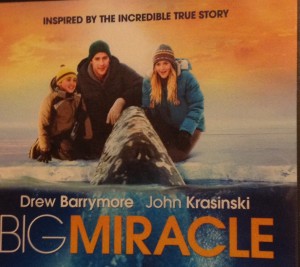Based on a True Story: A Primer on Historical Fiction Movies

Movies like Zero Dark Thirty, Argo, and Captain Philips all come from the same genre: historical fiction, movies based on true life events. A surge in popularity has occurred with these films as there are now more and more films based on a true story than ever before.
From filmography major Aaron Ross, “Movies like these easily become popular because they are about a certain moment of weakness or a dark time in history, which most people can relate to since we were living through it.”
These films do portray highly emotional times in American history: Zero Dark Thirty takes place during the hunt and eventual assassination of Osama Bin Ladin, and Argo is about a daring rescue during the Iranian Hostage Crisis.
“The bigger, more dramatic event the film covers, the more popular it becomes. But people notice smaller changes in those kinds of movies and could easily take offense.”
A major factor of historical fiction also lies in its name: fiction. Because of the description, film makers are allowed to make edits to true life events to make it more dramatic and to give the movie more impact. These edits can be seen in several ways: The final airplane chase scene in Argo shows Iran militants in cars shooting at the commercial airplane to prevent the hostages from escaping. While a highly dramatic and climatic scene, this did not actually happen in real life.
Zero Dark Thirty also has its share of fiction. The beginning of the movie shows F.B.I agents overseas interrogating Al Queda hostages. The agents were free to use unusual and painful ways of torture to get information from their enemies. This included leaving them bare naked, waterboarding, and stuffing them in a tiny box until the next interrogation. None of these events in the movie were true, nor were they needed to find and kill Osama bin Laden in real life.
Is this twisting of the truth alright for Hollywood? These film studios can lead us to believe in a certain fact from a historic event, like the airplane chase scene from Argo or the Zero Dark Thirty torture, that may or may not be true. However, these directors may have a right to change a story to make a movie based on a true story. As Ross pointed out, “Because of the title of the genre, historical fiction, they can get away with what documentaries can’t. Most documentaries can’t have a script, true acting, or moving plot. Although movies based on a true story, or BOATS movies, have skewed rules that let them do whatever they want, they make it truly entertaining and not just a documentary full of facts.”
“The truth of BOATS movies is the most pressing debate in the film industry. Many film students from my college avoid any historical context in their projects at all costs, only because my professor would get outraged. She would ask why we didn’t show ‘historical accuracy’ during the entire project, although our projects have to be a maximum of 20 minutes.”
The popularity of these historical movies certainly have gained popularity in a short period of time, but this has led to some intense debates about historical accuracy in films. Next time you see a movie that has been based on a true story, be aware that not everything you watch is always true.

